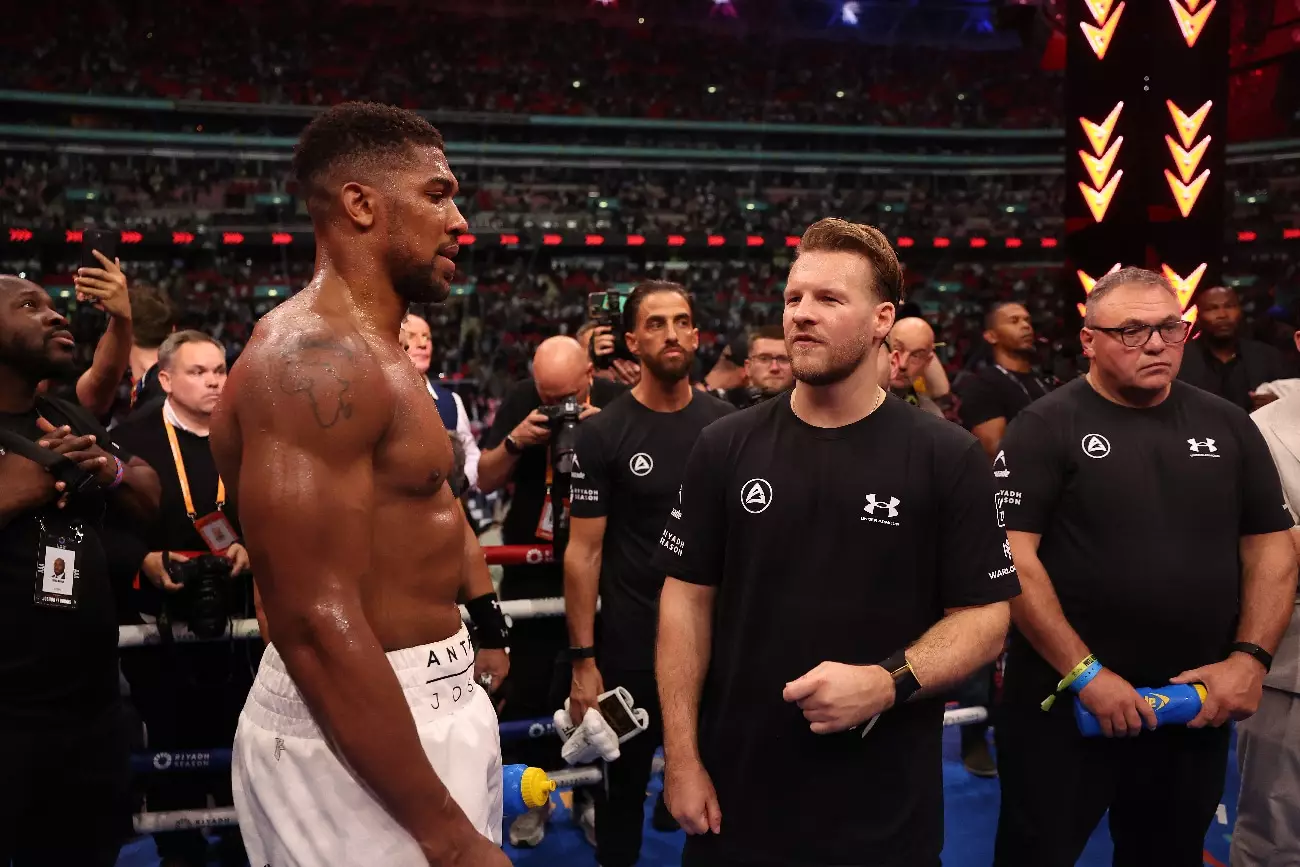The recent bout between Anthony Joshua and Daniel Dubois has sparked intense discussions in the boxing community, with many questioning Joshua’s approach and overall future in the heavyweight division. Joshua’s performance has drawn scrutiny not only because of the loss but also due to his own reflection on the fight. It’s clear that Joshua made tactical errors that could have been avoided, and his defeat raises critical questions about his strategy, resilience, and adaptability in the ring.
In boxing, the importance of strategy cannot be overstated, and Joshua’s attempt to brawl with Dubois in the fifth round exemplifies a significant tactical error. By entering into a trading of punches, Joshua put himself at risk, allowing Dubois to capitalize with a decisive counter right that ultimately led to the knockout. Joshua himself acknowledged this mistake, expressing regret for not employing a more calculated, sniper-like approach to his shots. His admission reflects a deeper concern about his adaptability—what happens when a fighter of Joshua’s caliber continues to revert to brawling, despite knowing the risks involved?
Joshua’s inclination to engage in a shootout, especially after being dropped, raises questions about his fight IQ. One could argue that throwing single, precise shots could have mitigated the danger he faced against a formidable opponent like Dubois. However, Joshua’s decision to fight fire with fire instead of playing it safe and effectively regaining control of the match did not serve him well. In high-stakes boxing, such decisions can be career-defining.
Joshua’s comments post-fight suggest a fighter who is grappling with both physical and mental aspects of resilience in the boxing ring. He referenced feeling “in survival mode,” which indicates a shift in acknowledgment of his own limitations following the early setbacks in the fight. Resilience in boxing is not solely about the physical ability to take punches; it also encompasses mental fortitude—the ability to recover, reset, and strategically outmaneuver an opponent after being wounded. Joshua’s struggle to implement effective tactics after the initial knockdown illustrates how mental clarity can often dictate the outcome of a match.
Moreover, his brief period of inactivity in the early rounds, coupled with a late surge in the fifth round, presents an alarming pattern. It questions whether Joshua has become overly cautious due to past knockouts, causing him to hesitate at crucial moments in bouts. This reduced aggression could contribute to a lack of confidence at a high level that he once displayed so dominantly in the ring.
The perception among fans and critics that Joshua may be finished as a top contender is undeniable. The defeat to Dubois has led many to reevaluate his legacy and career trajectory. Critics have pointed to his loss against Andy Ruiz Jr. in 2019 as a turning point that has haunted him ever since, leading to diminished performances against opponents who were able to exploit his vulnerabilities. How does one recover from such perceptions? The forthcoming decisions Joshua makes will be pivotal.
For Joshua, activating the rematch clause against Dubois could present an opportunity not only to redeem himself but also to prove to his detractors that he still possesses the skills necessary to compete at a high level. However, should he opt to walk away from this fight and into retirement, it may solidify the notion of a fading star, one who could not capitalize on favorable moments in his career.
For Anthony Joshua, the road ahead is steep, marked by questions of strategy, resilience, and fan perception. The boxing world is well aware that the heavyweight division is unforgiving; combatants must adapt, evolve, and sometimes completely reinvent their approaches. To secure his legacy and regain fan support, Joshua must reconvene with himself and his team, embracing a more sophisticated and precise style that emphasizes skill over brute force. The defeat against Dubois could serve as a valuable lesson—a crucible for growth—and if he chooses to reenter the ring, the boxing community will be eager to see if he can emerge from this period of introspection stronger than before.

